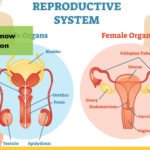What is Infertility?
Infertility is the stage of not getting baby to a couple in their reproductive age group. It may be primary or secondary infertility. Primary is one in which she has never been pregnant and 2nd is one in which she has conceived one is not conceiving again.
There are many factors contributing to infertility. Mainly these are :-
- Uterine factors
- Tubal factors
- Ovarian factors
- Peritoneal Factors
- Endocrine and Hormonal Factor
On an average according to WHO 10% couples are infertile. In the reproductive age group that is between 20 to 30 , a couple should conceived with in one year of marriage if not they should start investigating.
The doctor will start investigations one by one in the stages.
The doctor will do less invasive and simple tests early, but even with that the couple is not able to conceive then doctor will shift to more complicated and invasive procedure.
The list of investigations will be :-
- Ultra Sonography (USG)
- Semen Analysis
- Tubal Patency Tests eg :- Sonosalpingography, hysterosalpingography etc.
- Intra Uterine Insemination ( IUI )
- Hysteroscopy and Laparoscopy
- Test Tube Baby
- Hormone assa
These tests will differ from case to case, which comes first in the chronology.
What is IUI ?
IUI is done when the male factor is responsible and the count and quality of semen is less. In this procedure the semen sample is processed chemically and only the best grade IV sperms are put inside the uterine cavity. This increases the success rate of infertility treatment.
What do you mean by Polycystic Ovaries ?
It is genetic condition in which Ovulation occurs very infrequently or do not occur at all. That is why the women do not conceive. Your Doctor will give you ovulation induction drugs or may advice laparoscopy for you to conceive.
What is Ovarian Stimulation ?
Ovarian Stimulation
Ovulation drugs or “fertility drugs,” are used to stimulate the ovaries to produce multiple eggs rather than the single egg that normally develops each month. Multiple eggs are needed because some eggs will not fertilize or develop normally after egg retrieval. Pregnancy rates are higher when more than one egg is fertilized and transferred to the uterus during an IVF treatment cycle. Timing is crucial in an IVF cycle.
The ovaries are evaluated during treatment with vaginal ultrasound examinations to monitor the development of ovarian follicles When the ovaries are ready, hCG or other medications are given. The hCG replaces the woman’s natural LH surge andhelps the eggs to mature so they may be capable of being fertilized. The eggs are retrieved before ovulation occurs, usually 34 to 36 hours after the hCG injection is given. However, 10% to 20% of cycles are cancelled prior to the hCG injection. IVF cycles may be cancelled for a variety of reasons, usually due to an inadequate number of follicles developing. Occasionally, a cycle may be cancelled to reduce the risk of severe ovarian hyperstimulation syndrome (OHSS).







